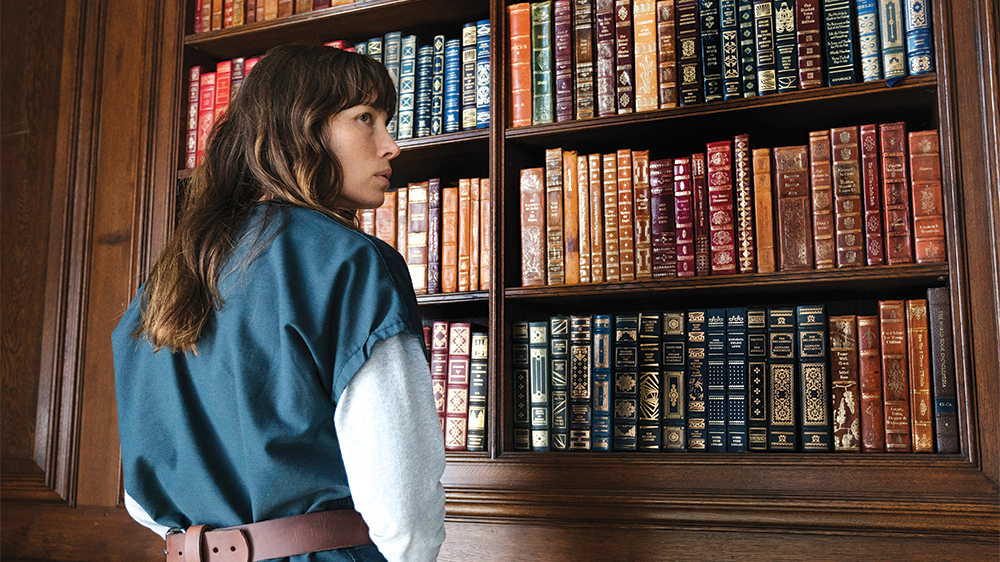‘Sinner,’ ‘Handmaid’s Tale’ Writers Go Off Book For Sophomore Seasons
By Randee Dawn
LOS ANGELES (Variety.com) – Off Book
Writers move away from original text in second seasons
By randee dawn
When Netflix’s “The Sinner” wrapped its limited series run last September, the story seemed over, having followed its source material — Petra Hammesfahr’s novel by the same name — to its end.
Then in March, “Sinner” got a second season. Now what?
“It’s liberating, and it’s also terrifying,” says “Sinner” showrunner Derek Simonds. “We don’t even have goalposts we might have to incorporate from a book. Sure, it’s been very freeing, but the possibilities can be paralyzing. There are so many more roads to explore.”
Books are common enough for small-screen adaptations, traditionally ending up as one-off movies or, at best, miniseries. But as TV storytelling has pushed past those expected boundaries, showrunners and networks have realized that there’s no reason to abandon a whole world and characters just because the book concluded. Shows such as “Queen Sugar” and “The Handmaid’s Tale” have sailed into additional seasons that have gone away from, if are still inspired by, their books. “” and “Altered Carbon” will follow suit.
In the case of “Sinner,” the series will become an anthology with one regular cast member (Bill Pullman). Simonds reoriented his goalposts by retaining the type of mystery in Hammesfahr’s novel. “We’re focusing on the whydunnit, rather than the who” and the book’s tone, a “dark, knotty, raw approach to sexuality and psychology,” for its next arc.
Hulu’s “The Handmaid’s Tale” also more or less ran out the 1985 Margaret Atwood book it was based on in the inaugural season, and showrunner Bruce Miller says that figuring out how to proceed for the second season was a terrific thought exercise for both the writing staff and Atwood herself.
“It’s fun to think about when you’ve had some distance on the original project, and you’ve had time to gestate and cogitate on what might happen,” he says.
But as he notes, venturing into new territory comes with unique challenges: “You don’t want to be repetitious,” he says. “You don’t want to play things that happen routinely in the world so much that the audience gets disgusted or inured. [In season two] we’re balancing a reasonable amount of darkness with a reasonable amount of lightness.”
Then there’s “Altered Carbon,” which may have finished telling the first of Richard K. Morgan’s Takeshi Kovacs novels with its first season, but has two more novels to plow through for hopeful second and third seasons.
That said, showrunner Laeta Kalogridis made alterations to Morgan’s characters from the start, so the pattern would continue considerably in any seasons to come.
“Richard has a very big-budget brain,” she explains. “The second book involves a worldwide war with nuclear explosions, some space travel, a giant alien dreadnought and an interstellar fight between aliens. It is prohibitively expensive in scope.”
The writers behind “The Terror,” a limited-series adaptation of Dan Simmons’ 2007 novel (a fictionalized account of the 1845-48 Arctic expedition by ships Terror and Erebus), knew there would be no second season, but nonetheless found themselves forced into a rewrite when the long-missing ships were discovered much further south than had long been believed, which then changed the historical record.
“Most of the scripts had been written when the ships were found, and in Dan’s novel one of the ships is destroyed,” says producer Dave Kajganich. “It was a lot of fun to figure out how we could undo common wisdom and fit what was coming out of the archaeological record with our scripts. It allowed us to give the characters even more credit for being smart in that situation.”
In the end, every show whose source material has dried up must find its own way to keep the story going. Sometimes that’s with fresh characters or new goals, and often whatever necessary narrative changes that were already made in the first season can provide a bridge into further story arcs.
“Queen Sugar” is now in its third season, comfortably settled in its rural black America setting and uniquely specific stories. They may no longer be based directly on Natalie Baszile’s 2014 book directly, but are clearly still guided by its spirit.
“It’s exciting when a TV show successfully takes the impetus for a story to the next, unexpected level,” says showrunner Kat Candler. “It’s hard to please the fans while also taking them to a different place. But you’re continuing the journey with them, holding hands together.”

